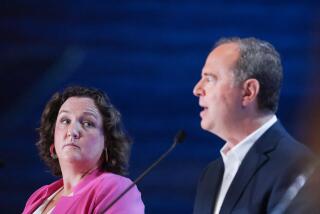Campaign Watchdog Group Has Ties to Philip Morris
- Share via
A self-styled campaign watchdog group, which recently released a study detailing millions of dollars of political contributions by trial lawyers, was created by a public relations firm hired by Philip Morris Cos. and secretly conducted the study for Philip Morris and other tobacco clients.
Documents provided to the Washington Post show how Contributions Watch, a supposedly independent and nonpartisan group that states its mission as improving campaign finance disclosure at the state level, was formed by a lobbying firm, State Affairs Co. That firm, in turn, worked with Philip Morris and Covington & Burling, a major Washington law firm that represents the tobacco industry, to orchestrate the release of the data collected by Contributions Watch. The study was issued by Contributions Watch.
The connections among Contributions Watch, State Affairs and the tobacco industry represent a new frontier in lobbying. It has become common for lobbying firms to create grass-roots citizen coalitions to buttress their causes. But the creation of a nonprofit watchdog group to generate media coverage helpful to the client’s cause represents a new twist.
“Of all the outrageous and unbelievable things that happen in Washington, this one takes the cake,” said Ellen Miller of the Center for Responsive Politics, which studies campaign contributions and fully discloses its own funding, which comes from foundations. “Posing as a nonpartisan, nonprofit research organization to be unveiled as nothing but a special-interest tool is really the bottom line of gall.”
State Affairs partners Charles Francis and John Davis confirmed in an interview last week that the Contributions Watch study was done for Philip Morris and other tobacco clients.
As a nonprofit, tax-exempt group, Contributions Watch is not legally required to disclose the source of its funding.
“What’s wrong is that they are presenting themselves as something they are not, and they are not telling us what they are,” said University of Miami law professor Frances Hill, an expert on nonprofit groups.
More to Read
Get the L.A. Times Politics newsletter
Deeply reported insights into legislation, politics and policy from Sacramento, Washington and beyond. In your inbox twice per week.
You may occasionally receive promotional content from the Los Angeles Times.










